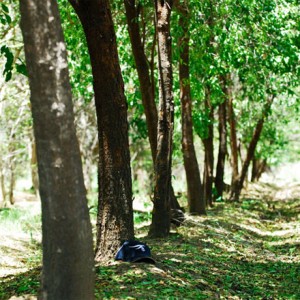The West Australian Government has outlined a significant restructure of the state sandalwood industry for 2016. Source: ABC Rural
The changes will include a reduction in wild sandalwood harvest quotas as well as a modification of industry sales and marketing structures.
The Legislative Council Standing Committee on Environment and Public Affairs has recommended that the harvest of wild sandalwood be reduced to try and preserve natural resources.
Under the direction of regulatory body the Department of Environment, the wild sandalwood harvest quota will be reduced from 3000 tonnes to 2500 tonnes a year from mid-2016.
Minister for Environment Albert Jacob said the wild harvest reduction was aimed at improving industry management and sustainability. Mr Jacob said wild sandalwood was a significant state resource.
“Not only for its export value, but it’s also a significant biodiversity resource,” he said.
Mr Jacob said plantation sandalwood, including native and Indian variety plantations, would “ultimately be the future” of sustainable industry growth.
“What we’re seeing with this [quota] change is a gradual track away from harvesting so much wild sandalwood.”
Sandalwood industry sales, marketing and tender processes will be modified as companies work out how to manage limited resources.
Forestry Minister Mia Davies said respondents of an independent consultation process had told the Government there was a need to modify the way sandalwood was sold and marketed.
West Australian sandalwood is worth about $11,000 a tonne, and in 2014-15 the industry generated about $25 million in revenue to the Forest Products Commission.
But Forest Products Commission chair Ross Holt said the current marketing structure needed to be upgraded.
Mr Holt said there was only a limited number of companies involved in the state industry and he said there was scope to grow.
He said the reduction in the wild harvest quota would mean there was less product available. But he said the reduction could also increase sandalwood value.
“The industry needs to look at how it can best value add that resource,” he said.
“We have had a lot of interest expressed from people in the regions and Aboriginal groups.”
Mr Holt said the quota and marketing changes would improve the competitiveness of the West Australian sandalwood industry.






